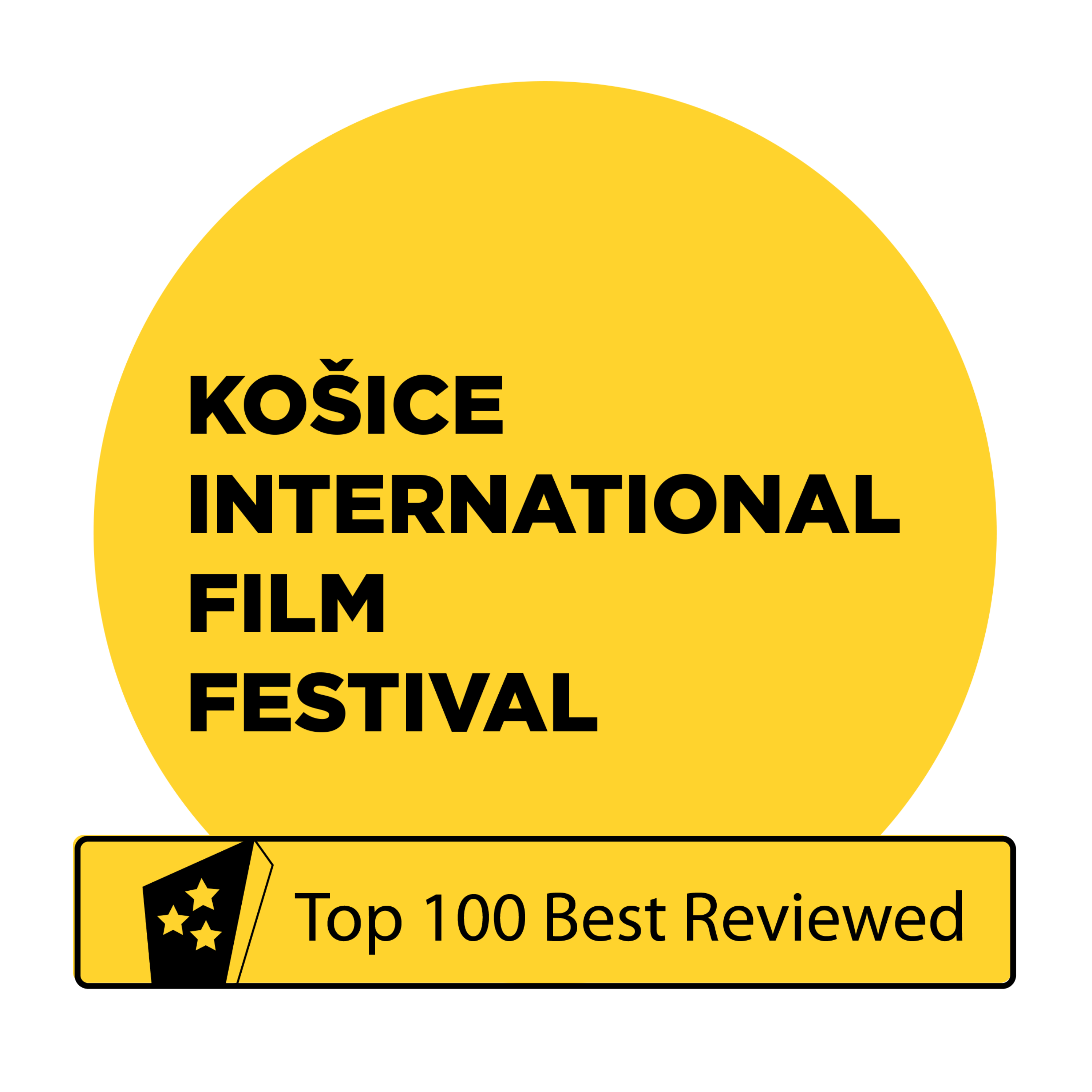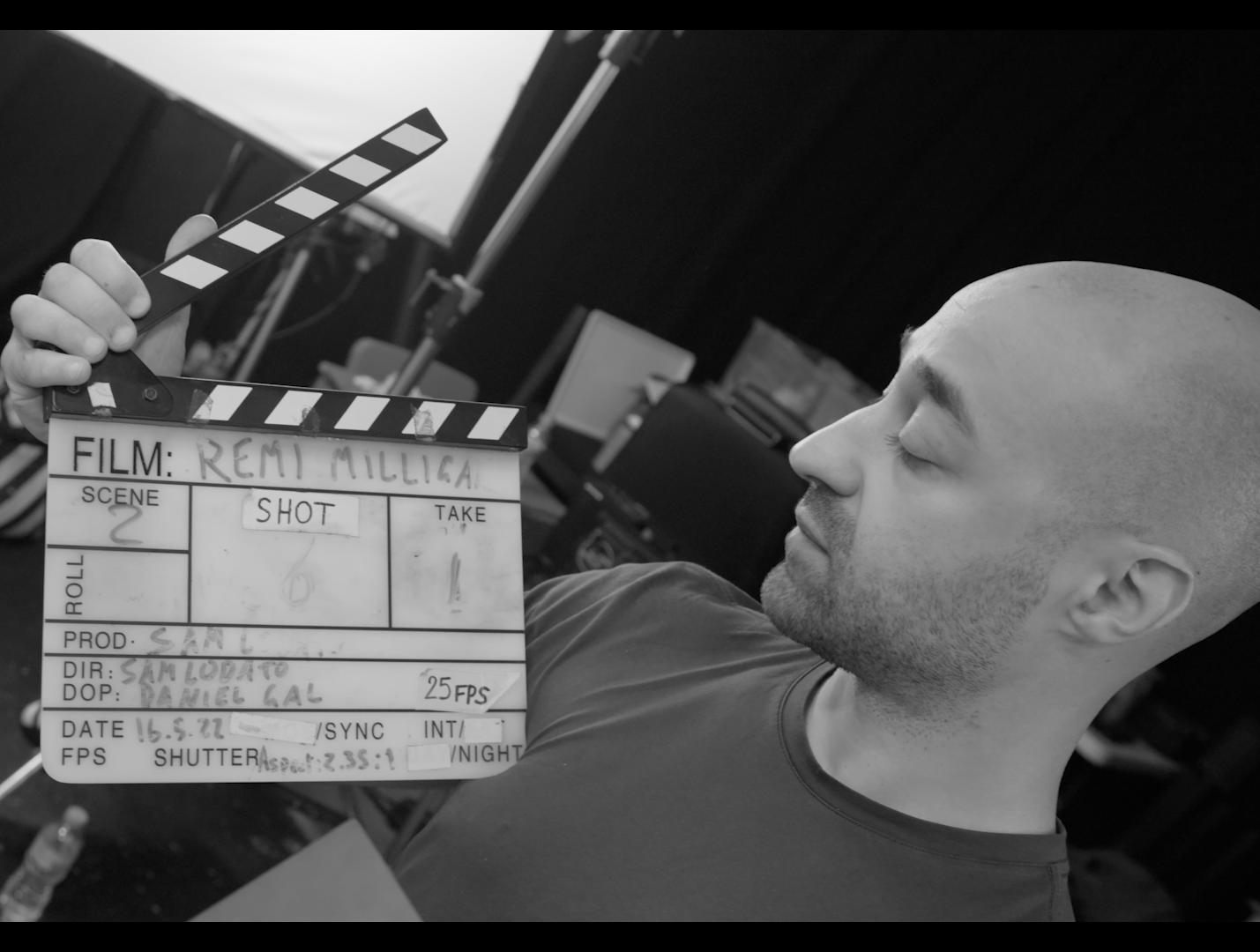Samuel Lodato
London-based writer and Director. Runs LodatoStudios.
Born in Catania, Sicily. Moved to London, UK aged 2 years old. Holds dual citizenship.
Dazzled by the magic of cinema from a very early age. Favourite film: Taxi Driver.
Studied Creative Writing and English Literature at University. Received formal training in Sound and Lighting for film. First novella 'The Places & People Between London and Sicily' published at age 21. Recently completed a second manuscript 'London Boy'
Filmography:
Remi Milligan: Lost Director [2023 – debut feature]
Gammon Steak & Peas [2015]
Frank's Inertia [2013]
Capture and Re-Live [2012]
What is the
story behind your film?
It’s a documentary that looks at the life
and films of Remi Milligan – a little-known amateur London filmmaker who
disappeared under mysterious circumstances in 2006.
Remi was a prankster, an eccentric and a director of endearingly trashy b-movies. Among his films: Killer Pencil, a supernatural horror about a possessed pencil that turns on its owner; Song and Dance at Guantanamo Bay, a musical set in the Cuban detention facility; Satsuman, about a half-human, half-satsuma creature who travels to Japan in search of his father.
The documentary features clips from Remi’s films, exclusive behind the scenes and interviews with the director’s colleagues, friends, and relatives.

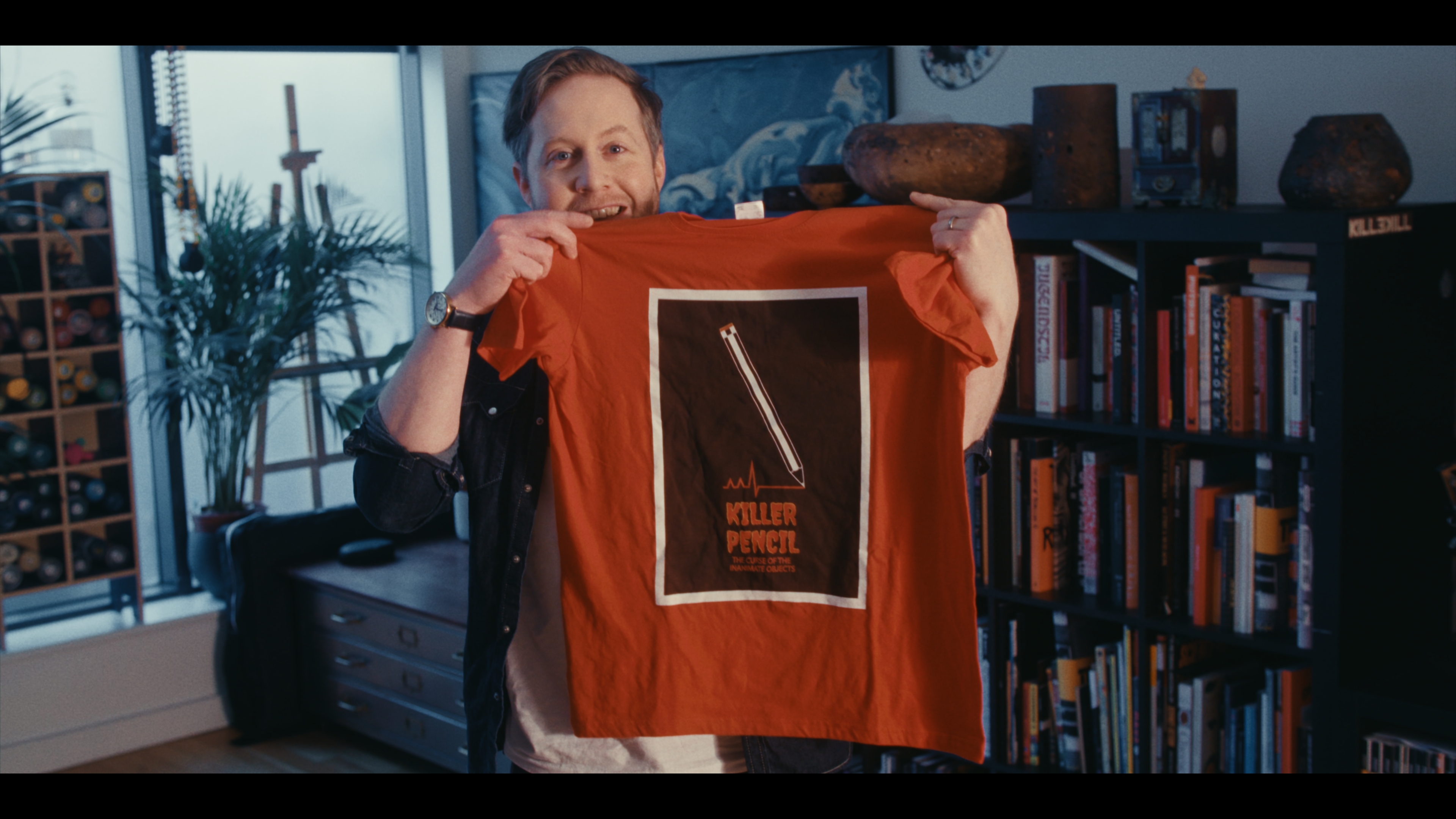
What should
people take away, gain, realise after watching your film?
I hope viewers walk away from the film and spend a couple of days exploring the
themes and come up with theories for some of the questions that are left
unanswered. There are also quite a few funny moments in the film – it would be
really cool if people spontaneously recalled them later and had a private
chuckle whilst going about their daily routine.
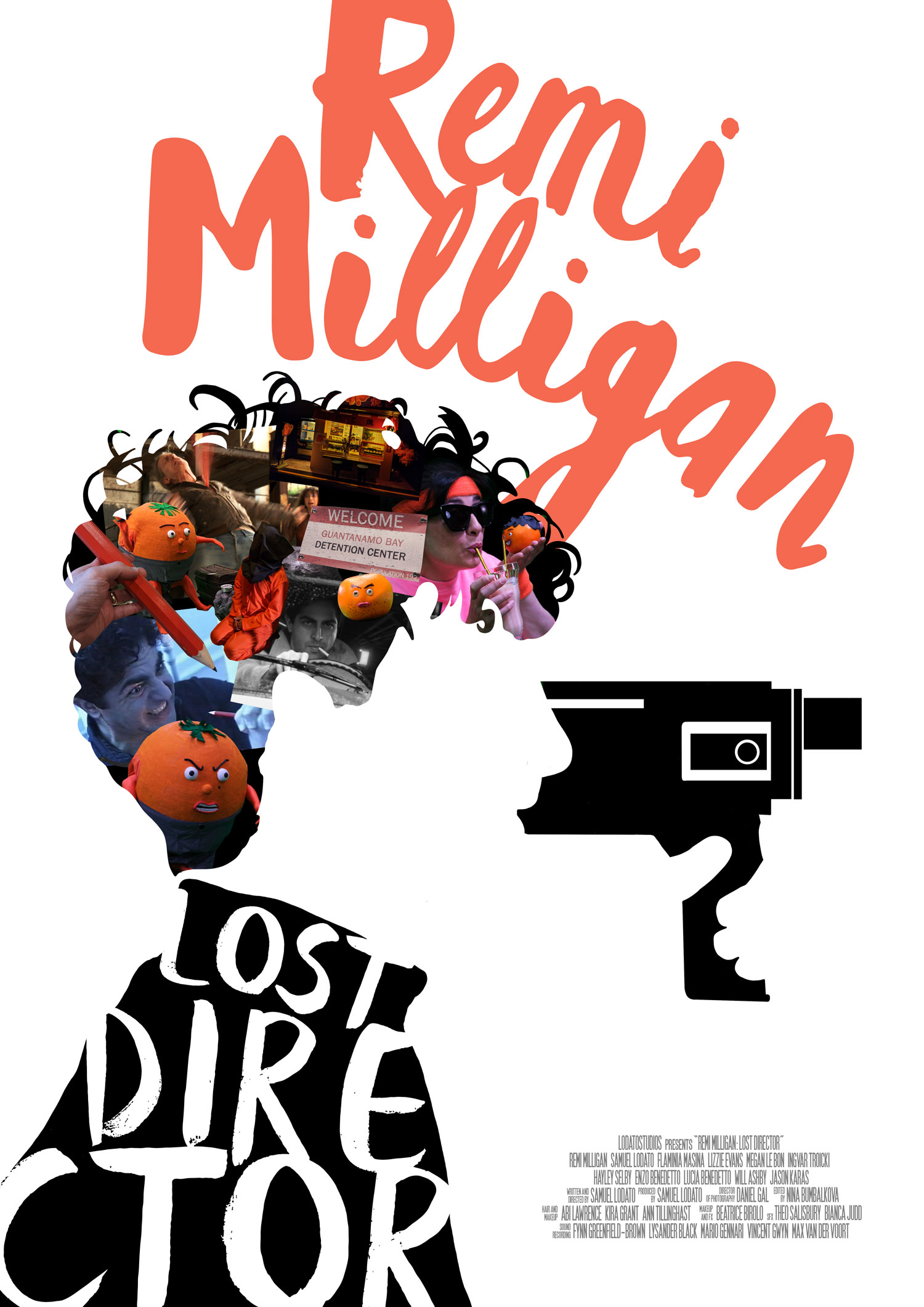
Do you
think that films can change people for the better or for the worse?
There’s no doubt in my mind. It’s not called the 7th artform for
nothing.
How was the
creation of your project at the time of COVID-19?
Covid almost killed the project! We were due to start principal
photography in April 2020, but then of course the first lockdown hit (In
England, anyway) at the end of March. I then got Covid myself and ended up
being in and out of the hospital for 3 months. We didn’t start shooting until
November of that year. All in all, it took about 18 months to shoot, because we
had to film in phases. I had to undergo Covid Supervisory training, produce a
covid risk assessment for my sets, submit my cast and crew to lateral flow
tests and of course supply a sanitising station on set.
What
creation style did you use in the production of your project? What cameraman
elements did you use?
The film has a rich and varied visual palette. The documentary segments
were shot in 4K, while the behind-the-scenes were shot on Mini DV with a
consumer-grade camcorder. We later digitised this footage for editing. We also
shot one of the films featured in the documentary on VHS tape, which was a
really cool experience. Also, the aspect ratios flit between 16:9 and 4:3
throughout.
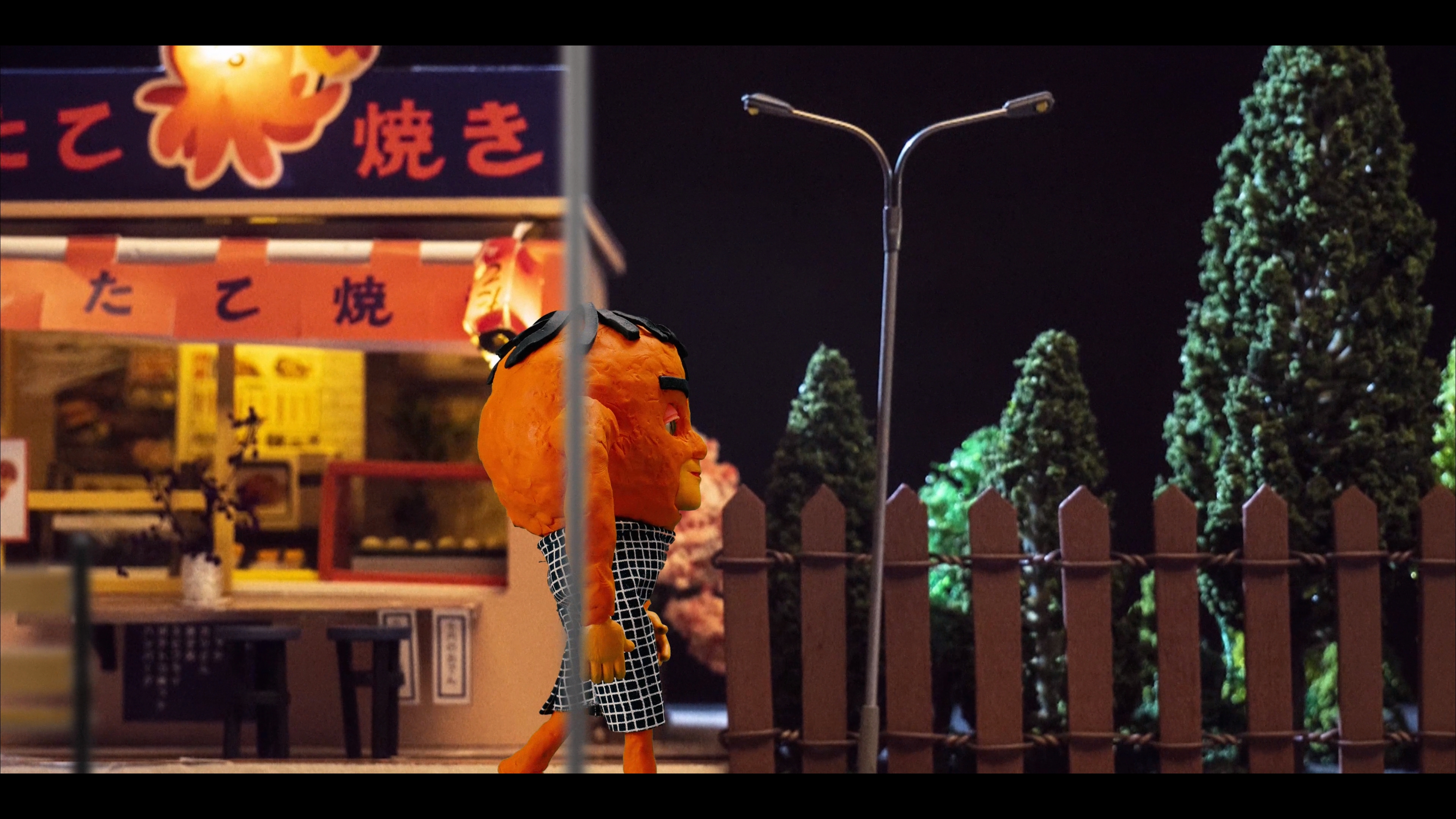
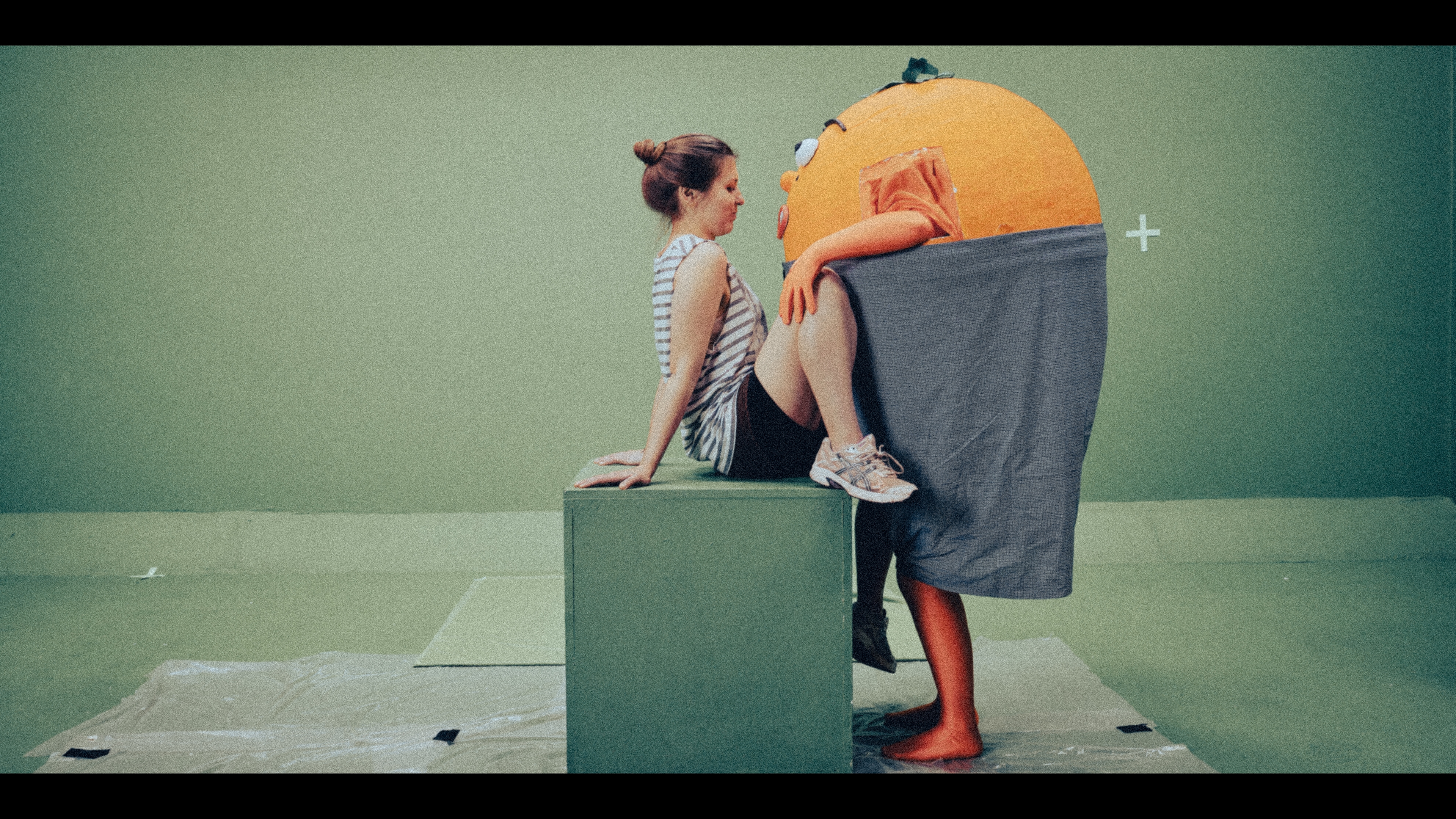
How did you
select the actors for your project?
I pile an abundance of effort, energy, and time into this process because actors
have an inherent power to make or break a film. This was particularly the case
when casting for Remi Milligan: Lost Director as the nature of the film
required actors with a set of specific skills. First and foremost, I needed
people who wouldn’t fall into the ‘self-awareness’ performance trappings of
mockumentary talking head interviews. Aside from that, I was looking for actors
possessing a talent for (or at least an understanding of) subtle comedy and
improv, too. I spent many months holding auditions and looking through
self-tapes.
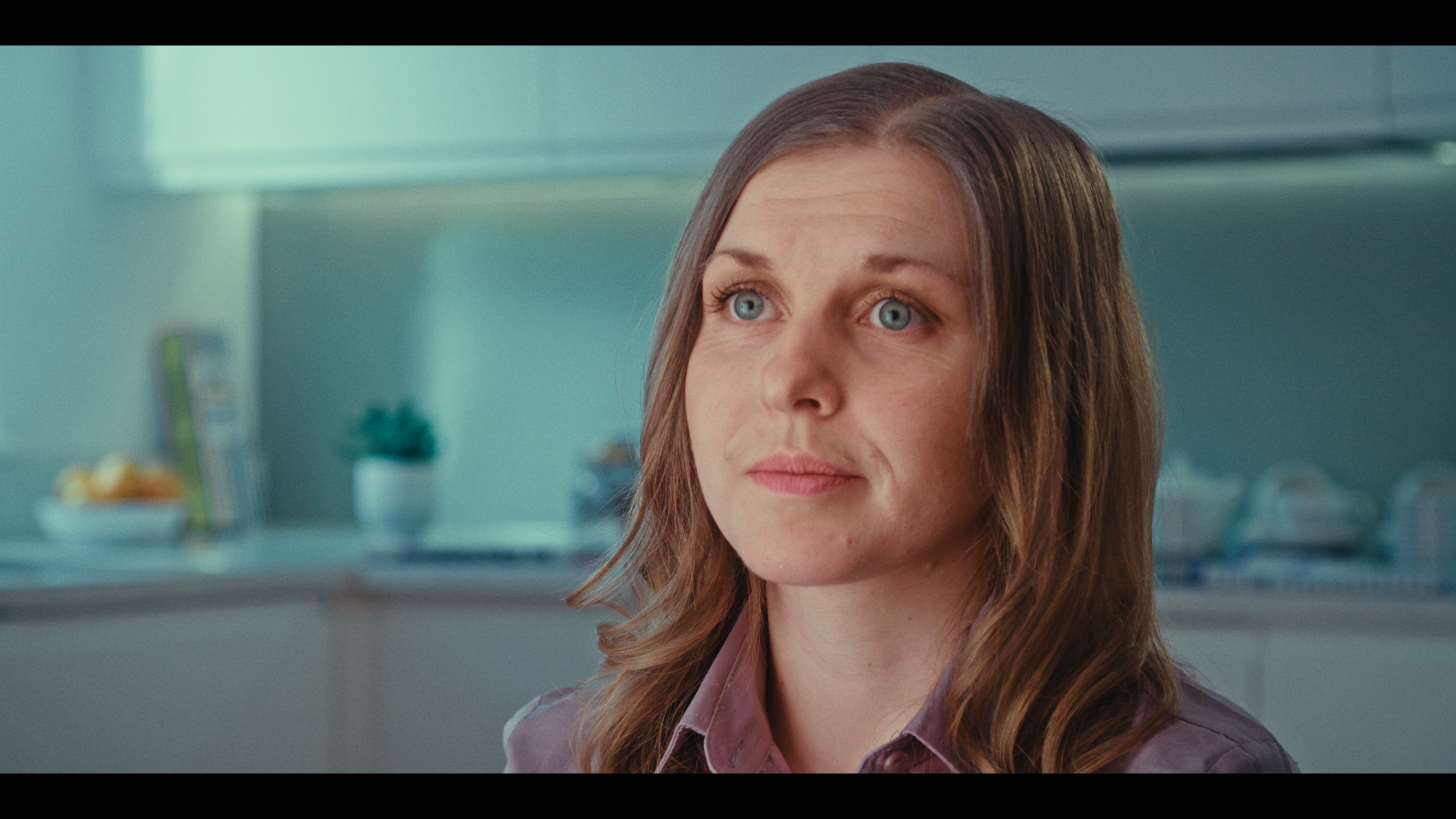
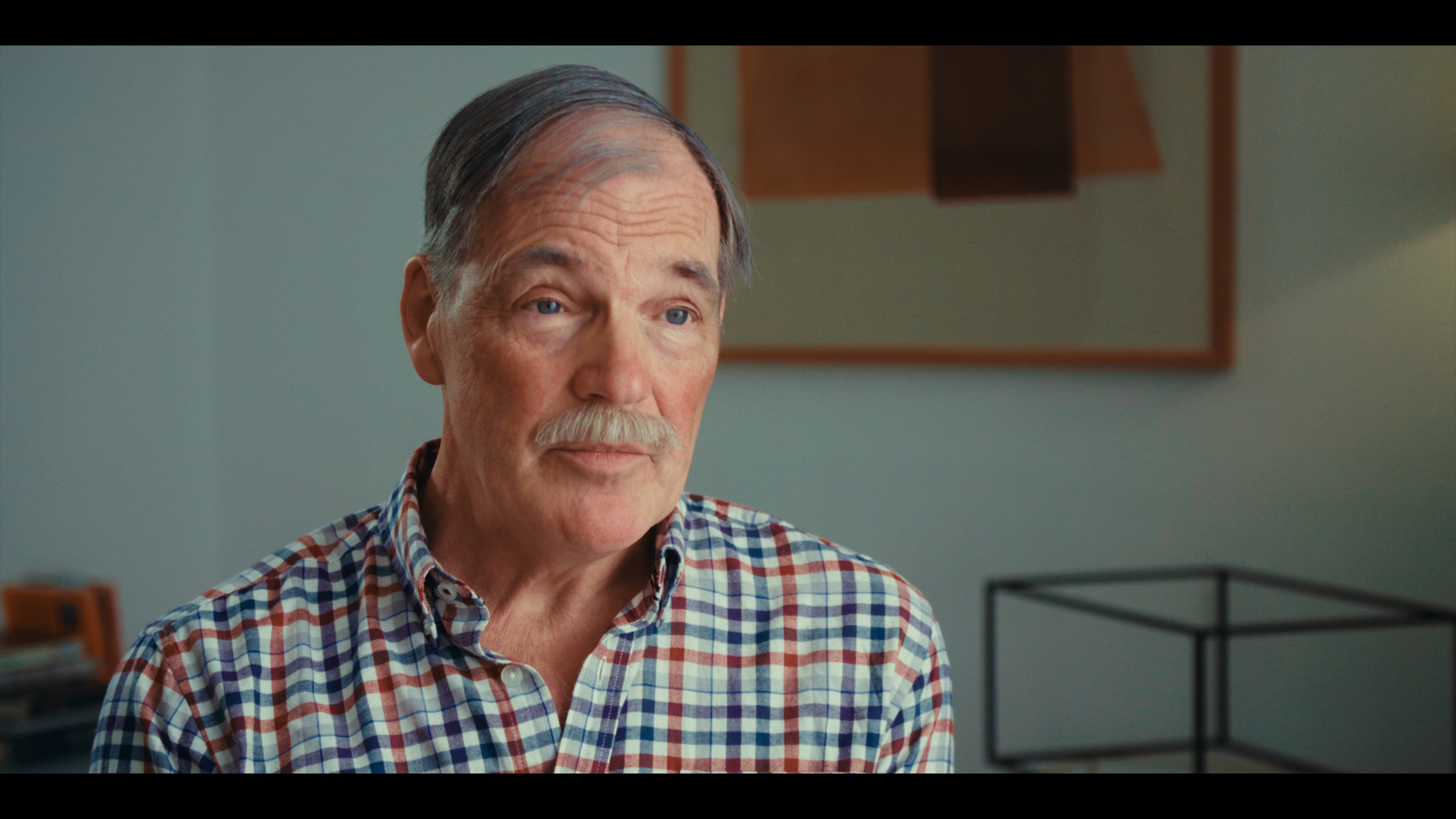
Why do you
think your film should appeal to distributors?
I think there is a market for my film. There’s a crossover of two
viewer demographics:
Lovers of bad films and bad filmmakers.
Lovers of mockumentaries and found footage films.
These two
subgenres have modest, but dedicated and passionate fanbases that have grown
steadily in the last 20-25 years. Those viewers will appreciate the quirky
charm and fresh injection of ideas in Remi Milligan: Lost Director.
At which
festival has your film been screened?
We’ve only just begun entering Remi Milligan: Lost Director to film
festivals, so we’ll have a clearer idea in a few months from now. We did hold a
closed-doors, cast & crew screening at the Garden Cinema in London.
How did
your acquaintances react when they first saw the film?
The feedback I got from people, in general, was that the film ended up
being a lot funnier than they’d anticipated. And that I was able to draw out
strong performances from all the actors. In particular, a lot of praise was
given to the actress who played the role of the titular character’s mother.
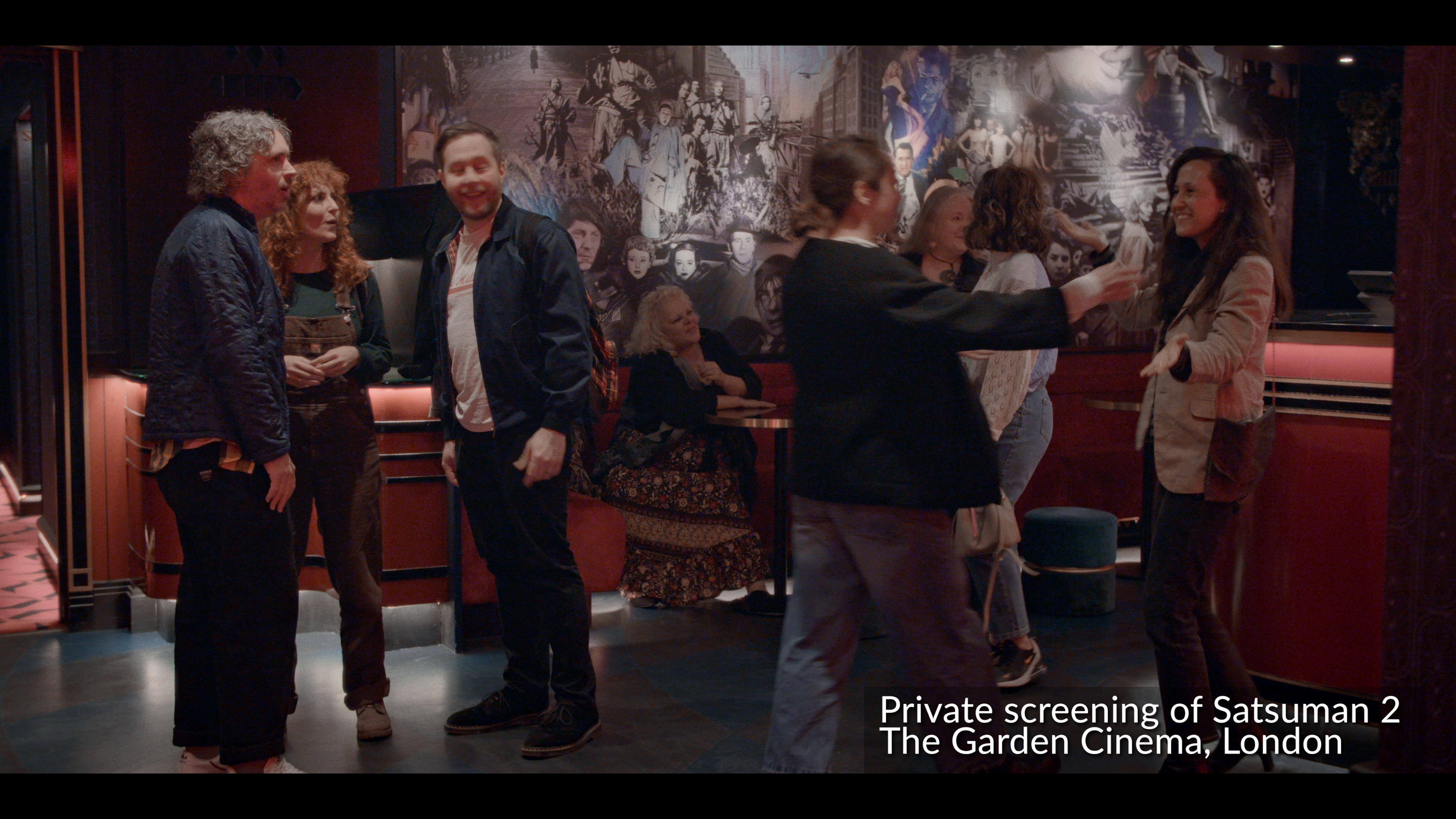
If you
could change something in your film, what would it be?
I try not to think in those terms, usually, but there was one thing that
I was unable to include in Remi Milligan: Lost Director that bugged me until
recently. We’d planned to shoot a scene where one of the characters in the film
would start to develop an unsettling, frightening feeling that he was a
fictional character in a film. I think it would have changed the overall tone
quite a lot. Sadly, the actor in question had a scheduling conflict at the time
which meant that he wouldn’t have been available to shoot this scene for at
least another 3-4 months. The production had already suffered a number of
delays (due to the pandemic and also Brexit) so we made an executive decision
to scrap the scene.
Which
movies are your favorites and why?
Taxi Driver and Blade Runner will forever hold a special place in my
heart – these are the films that made me want to become a filmmaker.
What topics
do you like to address in your stories?
I kind of feel like this is out of my control. At the risk of sounding mystical
or pretentious, the crux of my job is to give a body to an abstract idea. I’m
talking about the original idea for the film, which often presents itself in
the form of a single image or a mood or emotion. I believe that this original
idea is actually already complete, containing all the necessary elements like
themes, topics and so on. Think of it like a ZIP folder that needs the files to
be extracted or a code that requires deciphering: all the information is there,
but it needs to be pulled out. Managing to create a film that is as faithful as
possible to the essence of the original idea is a metric of success for me.
What is
your motivation in making films?
What a fantastic question. I don’t think it’s something that I can
articulate. It’s more of a feeling, an urge to create.
Which
contemporary filmmakers motivate you the most?
I would say Martin Scorsese, David Lynch, David Fincher, Ruben Östlund, Denis Villeneuve, Damian Chazelle,
Nicolas Winding Refn, Michael Haneke and Peter Strickland.
What
projects do you plan to shoot in the future?
Thinking about future projects fills me with excitement. At the moment I’m in
the development stage for a short film about a youth worker. The intention is
for it to work as a standalone piece and as a pitching tool to raise
funds for a full-length feature. I’m also writing spec scrips for two different
features – one of which I intend to direct. Finally, I’ve started developing a
stop motion anthology series for web – the only way I can describe it is:
‘Black Mirror meets Love, Death, and Robots. With stop motion puppets.’
LEARN MORE
IMDB: https://www.imdb.com/title/tt23806066/?ref_=tt_mv_close
INSTAGRAM: @lodatostudios
TRAILER
YouTube: https://www.youtube.com/watch?v=3ilkwxcbm10
OFFICIAL FILM WEBSITE: https://lostdirectorfilm.com
FANSITE: https://www.milliganisalive.com
